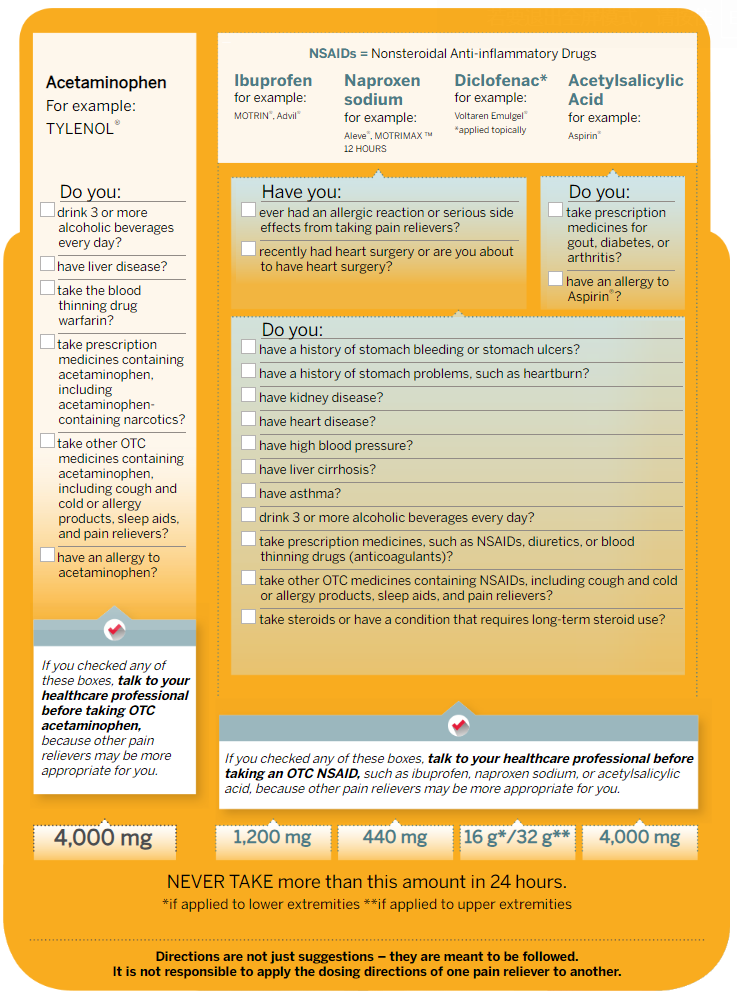OTC pain relievers can provide the relief you want to get on with your day, but not all of them are suitable for everyone.
When you’re in pain, your first thought may be just to get relief. But it’s also important to think about responsible use. With certain pain relievers, your age, health conditions, and other medications you are taking may increase the chance of unwanted side effects. Make an appropriate choice for you. If in doubt, always check with a healthcare provider.
Click here to download the complete medicine comparison chart

Your age and health conditions may affect your pain reliever choices
Did you know, for example:
If you have liver disease, acetaminophen labels say to ask a doctor before use
If you take Aspirin® 81-325 mg for daily preventative therapy, ibuprofen may decrease that heart health benefit
If you have high blood pressure or heart failure, ask your doctor before using an NSAID
You should ask a doctor or pharmacist before using acetaminophen if you are taking warfarin-containing blood thinning drugs or if you drink 3 or more alcoholic beverages per day
If you are over age 65 you may have an increased risk of stomach bleeding with certain oral OTC pain relievers like ibuprofen, naproxen sodium, or acetylsalicylic acid
Important: This is not intended to be a complete listing of factors or to replace the information on product labelling or advice given by a healthcare professional.
Take these steps to learn which pain reliever may be appropriate for you:
Always read and follow your medicine labels
Use the helpful comparison chart to assist in making an appropriate choice for you
If you still have questions, ask your healthcare professional

